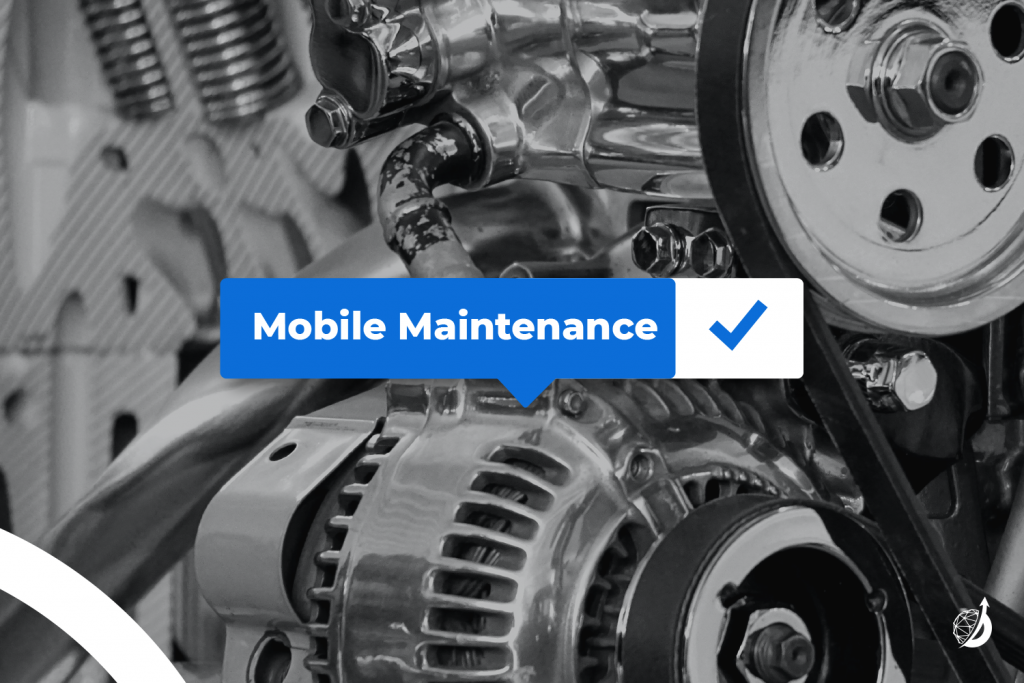The Power of Mobile Maintenance in Today’s Fleet Management Landscape

A few weeks back, I was discussing COVID-19 with Ryan Barnes, a fleet manager that I’ve known for years. He manages a 300-unit fleet across multiple locations for an agriculture equipment retailer. Like so many fleet managers, he has had to make key changes to navigate the new reality of doing business amid the COVID-19 restrictions.
Here are a few insights Ryan shared with me:
We will remain open and fully operational through this time, mostly due to the fact that Agriculture businesses are classified as “Essential Critical Infrastructure.” Crops obviously have to be planted and harvested in a seasonal window, which we are coming up on very soon with warmer weather right around the corner. That being said, we have had to make operational changes to just about every aspect of our business just like every other retailer that remains open during these times.
Our main focus for our employees and our customers is following the CDC rules when it comes to personal space, cleanliness and staying home if you are sick or have a compromised immune system. We have limited employee travel between stores, encouraged customers to order online and use our curbside pickup, and we have also strategically placed parts bins across Oklahoma, Kansas, and Arkansas so that customers can order parts online and we can deliver them to the bins to be retrieved by the customer. In the cases where we are required to repair or pick up a customers’ equipment on their property, we have given our drivers the cleaning agents and processes necessary to minimize exposure and we have encouraged our drivers and customers to not have contact on site.
Although every fleet manager’s experience is unique, the restrictions of COVID-19 have required fleet managers to get creative about how they do business. In addition to the safety precautions Ryan shared above, the fleet management industry is also seeing an increased demand for strategies that deliver cost savings and flexibility. As the landscape continues to shift, we’ve seen heightened interest in two programs that were already picking up steam prior to the coronavirus: mobile maintenance and mobile fueling.
Mobile Maintenance
During COVID-19, fleet managers are under even more pressure to understand, and optimize, their cost per asset. A significant portion of a fleet’s cost stems from maintenance. Mobile maintenance programs have the potential to decrease downtime by getting an asset serviced and back on the road faster, and/or performing maintenance during scheduled idle time. Given that fleet maintenance spending increased between 3% and 5% in 2018, this is a critical area for cost optimization. Meanwhile, it’s difficult to overstate the impact of unplanned downtime’s “soft” and “hard” costs.
In some ways, mobile maintenance takes a page out of ridesharing’s book. With these services, certified technicians come to your facility–or another specified location–rather than require vehicles at their shop or dealership. For trucks or trailers that sit idle, mobile maintenance can get the job done with no deviations from the vehicle’s route and no added downtime. Between pre-scheduling maintenance during planned idle time and avoiding unforeseen changes to planned routes and mileage, mobile solutions can quickly add up to significant cost savings. We’re seeing many fleet managers supplement their existing maintenance program with a mobile maintenance component that delivers more flexibility and reduces costs overall.
Mobile Fueling
Along with maintenance, fuel costs are often top of mind for fleet managers. Mobile fueling operates with a similar value proposition to mobile maintenance: flexibility, convenience and optimized costs. We’ve already seen mobile fueling catch steam in the energy industry; now, these solutions are beginning to gain wider appeal for construction, transportation and a variety of other fleet types.
The best mobile fueling partners analyze fuel usage and other fleet data to determine when your fleet will require fuel. Then, they use these predictive analytics to perform that fueling at your facility. Given the significant labor and time involved with having employees refuel their own vehicles, many business fleets are now embracing mobile options as an avenue for cost savings.
(Want to dive deeper into fleet analytics? Check out our blog post on this trend.)
At Onward, we view mobile maintenance and fueling as two parts of a comprehensive fleet management program. With the help of our world-class mobile maintenance and fueling partner, our program helps customers avoid downtime and maximize flexibility. Our billing platforms make adopting these programs even easier for fleets looking to streamline their spending quickly.
As the market landscape continues to embrace a new norm, mobile solutions will contribute to a more flexible, cost-effective approach to fleet management. If you’re looking for ways to optimize your cost per asset, let’s have a conversation about our mobile maintenance program and other value-add fleet management solutions.
